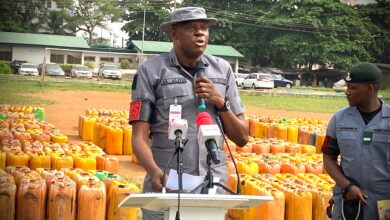
- As Capital Importation Hits $3.37 Billion In Q1 2024
- Private Sector Activities Slowdown In June
By Edu Abade
The Central Bank of Nigeria’s (CBN) Money and Credit Statistics reveal that money supply (M3) rose to N99.23trillion in May 2024. This is a 2.3 percent (N2.26trillion) month-on-month increase from N96.97trillion recorded in April 2024 and a 78.1 percent (N43.54trillion) year-on-year increase from N55.69trillion recorded in May 2023.
Details of the figures also revealed that a 23 percent surge in net domestic assets from N68.24 trillion in April 2024 to N83.9 trillion in May 2024 is responsible for the increase.
Net domestic assets also accounted for 84.5 percent of the total money supply. Although the increase in money supply is a strong stimulus to economic growth, it could limit the effectiveness of the central bank’s efforts to curtail inflation through an increment in the Monetary Policy Rate (MPR).
With an increase in the money supply, the purchasing power of consumers is eroded as the inflation rate persists and stands at 33.95 percent in May 2024. It is pertinent for the government to tame the rate of increase in money supply and implement policies that boost economic output.
The Centre for the Study of the Economies of Africa (CSEA) argued that this can involve policies aimed at improving productivity, supporting key sectors such as agriculture and manufacturing, and encouraging investments in infrastructure.
In tandem with these, CBN should consider adopting tightening measures such as open market operations (OMO) while monitoring the net domestic assets (NDA) to ensure that they are within the desired limit.
Figures in the recent National Bureau of Statistics (NBS) Nigeria Capital Importation report show that the total value of capital importation stood at $3.37billion in the first quarter (Q1) 2024, a 210.2 percent increase from $1.08billion recorded in Q4 2023. Capital importation significantly increased by 198.06 percent compared to $1.13billion Q1 2023.
Of the total capital imported in Q1 2024, portfolio investment was the highest at $2.08billion (61.5 percent), followed by other investment at $1.18billion (35 percent), and foreign direct investment at $119 million (3.5 percent).
Destination-wise, only two states and the Federal Capital Territory (FCT) recorded capital importation in the quarter: Lagos State, which received the highest value, at $2.78billion (82.4 percent), Ekiti State at $0.01million and Abuja (FCT) at $593.58million (17.5 percent).
The report further revealed that the highest capital importation came from the United Kingdom (UK) in Q1 2024, accounting for over 50 percent of the total capital importation valued at $1.80billion.
The surge in capital importation tallies with an increase in loans under “other investments” and “money market instruments” categories within the portfolio, signifying investors’ interest in stocks and equities.
Conversely, FDI, which contributed the least, also recorded a 35 percent decline quarter-on-quarter partly due to macroeconomic uncertainties, which have led to a dip in investor confidence and the exit of multinational corporations.
Therefore, the government should intensify efforts to encourage long-term investments by creating a favorable business environment, ensuring forex liquidity and tackling insecurity.
Meanwhile, Stanbic IBTC Bank, reports that Nigeria’s Purchasing Managers Index (PMI) stood at 50.1 points as of June 2024, a decline from 52.1 points recorded in May 2024. The PMI measures the extent of private sector activity in a country, with values above 50 indicating expansion and values below 50 signaling a contraction.
The PMI of 50.1 points is the lowest recorded this year and suggests a slowdown of private sector activities, which could be associated with the strike actions by Union workers. The decline in PMI suggests the economic growth rate in the second quarter might be relatively low compared to the 2.98 percent recorded in the first quarter.
With the private sector being a significant contributor to the GDP, any slowdown in this sector could lead to lower economic growth rates, potentially affecting employment levels and income. Therefore, there is a need for the government to promptly attend to the union workers’ demands to prevent another shutdown in the year.
Besides the strike embarked upon by the union workers and the slow pace of private sector activities impacted on the difficult business environment to the extent that the issues remain largely unresolved, as Nigerians continue to face severe economic hardship.
The NBS and CSEA argue that an improved business-friendly environment will go a long way in increasing private sector output. Hence, the government must prioritize pro-business infrastructure, while addressing inflation and encouraging businesses to adopt new technologies and practices that can contribute to growth.











